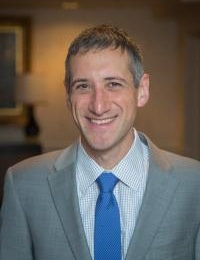Speakers
Keynote Speakers
 |
Daniel Reich
Bio: Daniel Reich is a neurologist and neuroradiologist who directs the Translational Neuroradiology Section in NINDS. In his clinical practice, he cares for patients with multiple sclerosis and other neurological diseases, and he also leads several clinical studies focusing on multiple sclerosis. Research in his lab focuses on the use of advanced MRI techniques to understand the sources of disability in multiple sclerosis and on ways of adapting those approaches for research trials and patient care. He is particularly interested in harnessing noninvasive imaging modalities to dissect biological mechanisms of tissue damage. Daniel has published in top journals such as N Engl J Med, Nature, JAMA Neurology and Nature Communications. |
 |
Kate Schroder
Bio: Professor Kate Schroder heads the Inflammasome Laboratory at the Institute for Molecular Bioscience (IMB), University of Queensland, as an NHMRC L2 Leadership Fellow. Kate is also the Director of the IMB Centre for Inflammation and Disease Research, and an editorial board member for Science Signaling, Cell Death and Disease, and Clinical and Translational Immunology. Kate’s laboratory investigates how inflammasomes signal to induce cell death and inflammation, how inflammasome signalling controls microbial infection but drives pathological inflammation in diseases, and mechanisms of inflammasome inhibition by new small molecule inhibitors. Kate has published in top journals such as Cell, Science, Nature Medicine, Science Immunology, and Nature Chemical Biology. She is an enthusiastic mentor for her team, and an advocate for Equity, Diversity and Inclusion within and outside of the University of Queensland. |
Arun Shukla
Bio: Prof Arun Shukla pursued his Ph.D. with Prof. Hartmut Michel at the Max Planck Institute of Biophysics in Frankfurt, Germany. He subsequently joined the laboratory of Prof. Robert J. Lefkowitz at Duke University working in very close collaboration with Prof. Brian Kobilka's laboratory at Stanford University. He is now the Joy-Gill Chair professor at the department of biological sciences and bioengineering at the Indian Institute of Technology, Kanpur. The overarching goal of the Shukla laboratory is to understand the activation, signaling and regulation of G-protein- and Arrestin-coupled receptors, and has published >20 cryo-EM structures of GPCR and ACR complexes, including of complement anaphylatoxin receptors, that have provided key structural and mechanistic insights into ligand/receptor interactions and signalling mechanisms. This has resulted in seminal work published in top journals including Cell, Nature, Science, and Molecular Cell. |

